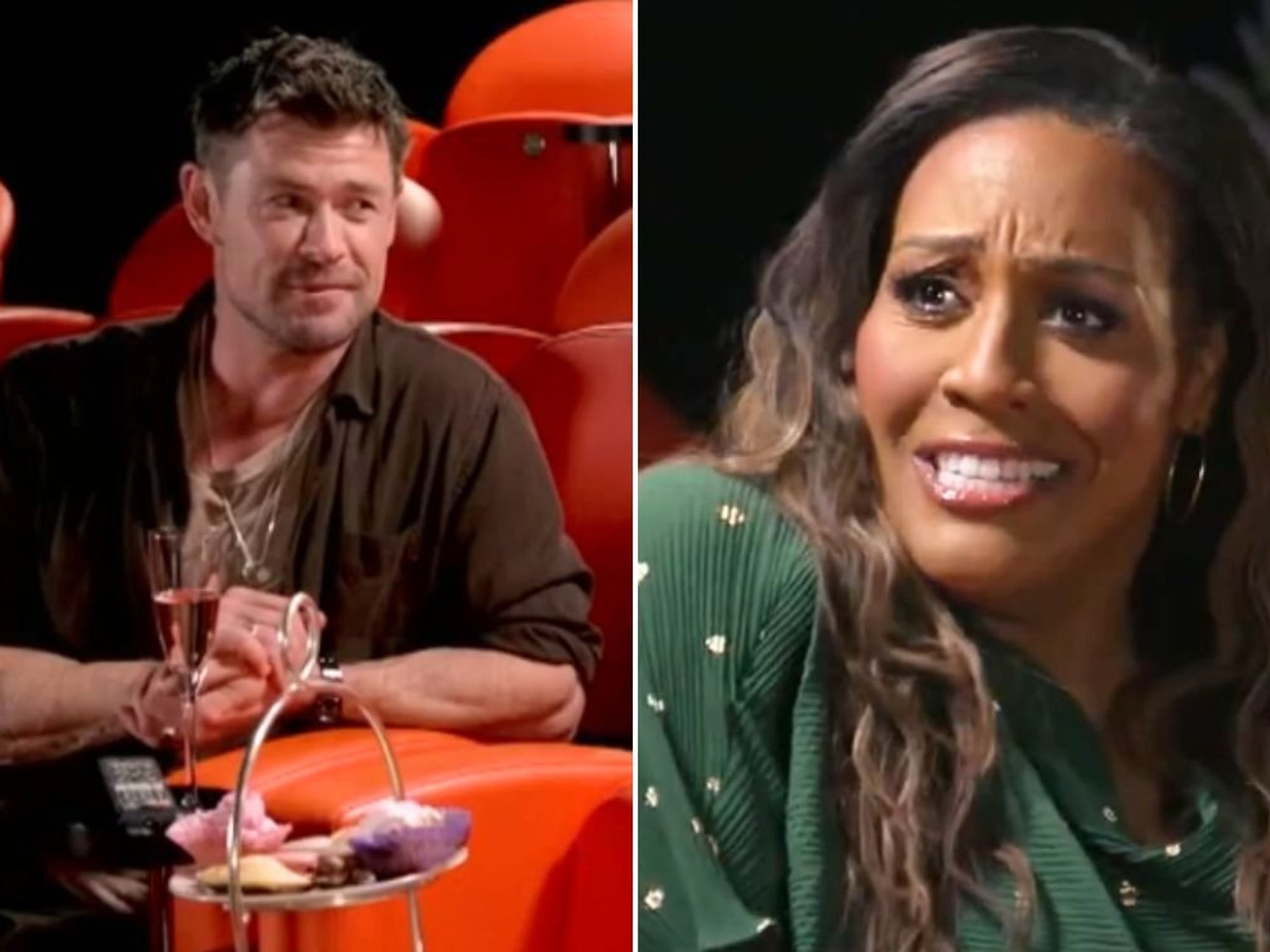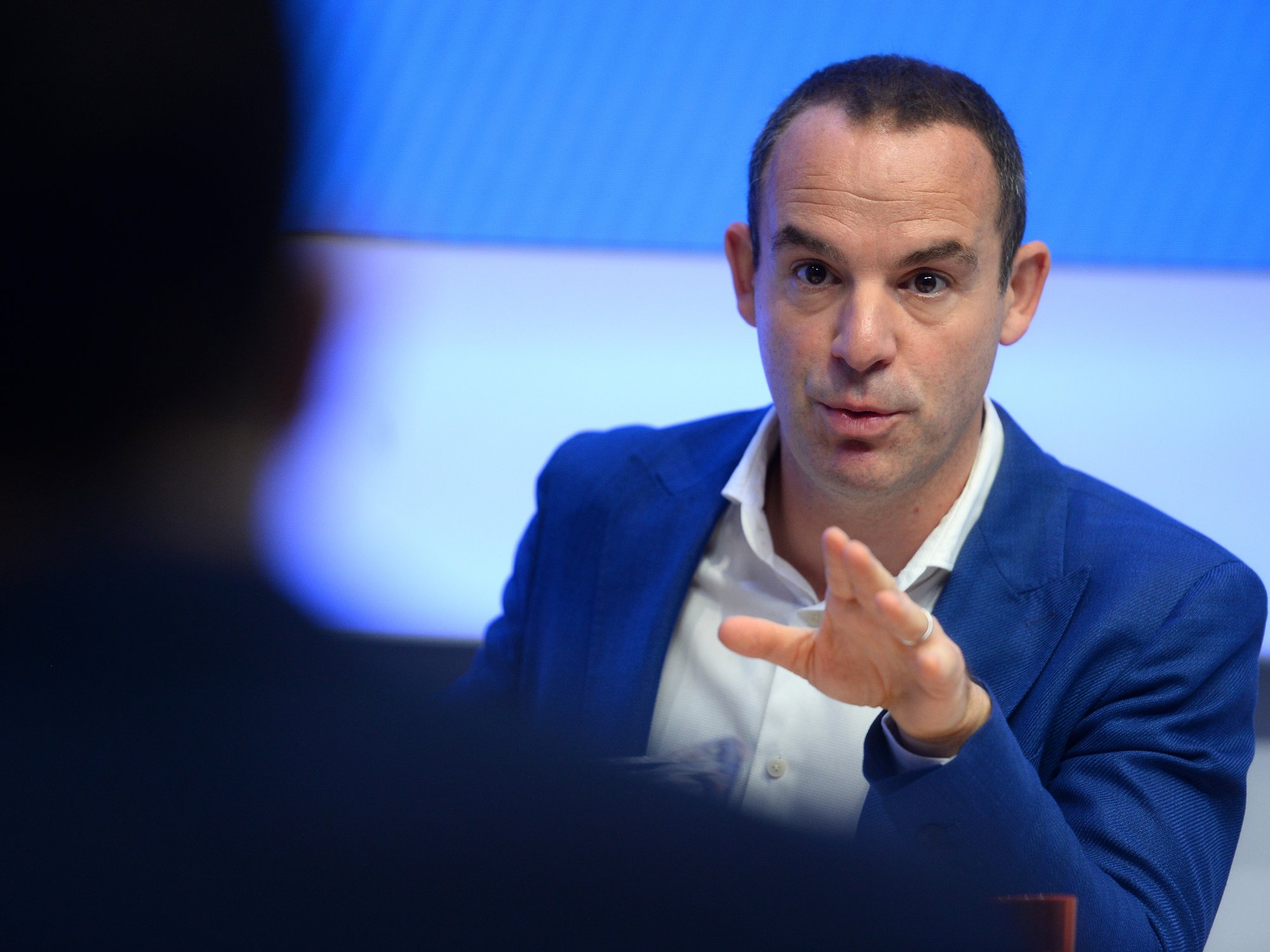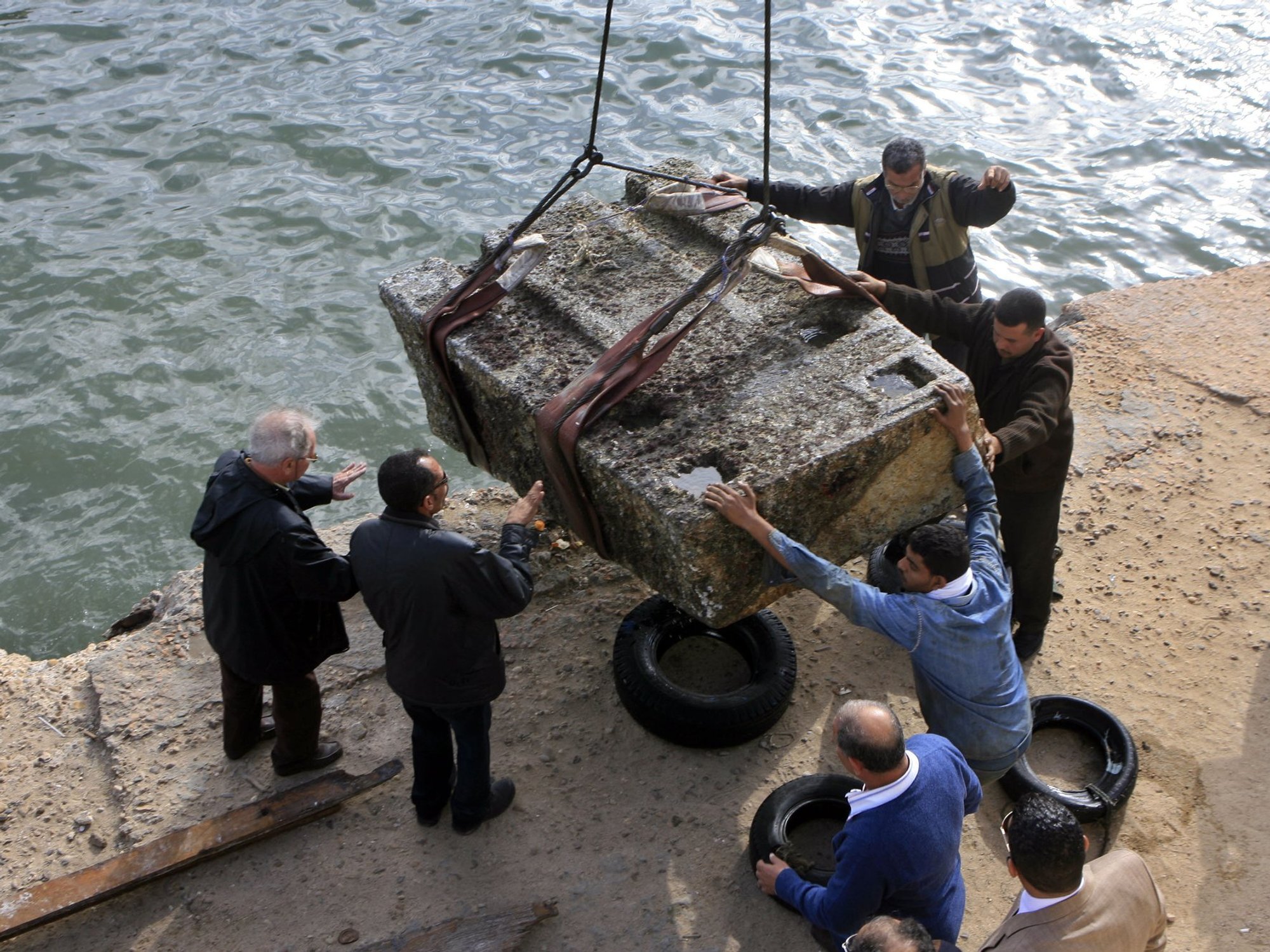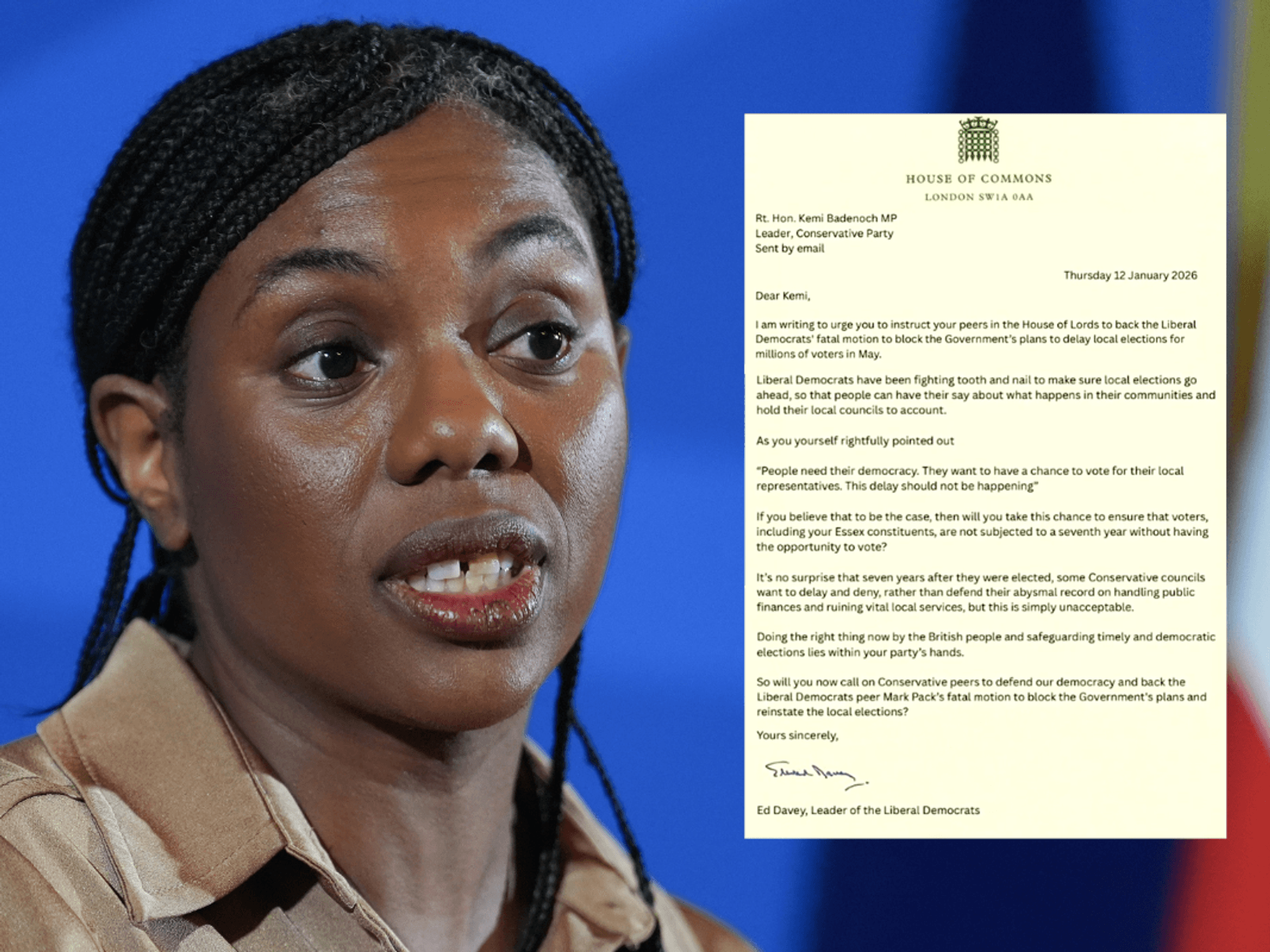READ IN FULL: The full transcript from Bev Turner's interview with Donald Trump
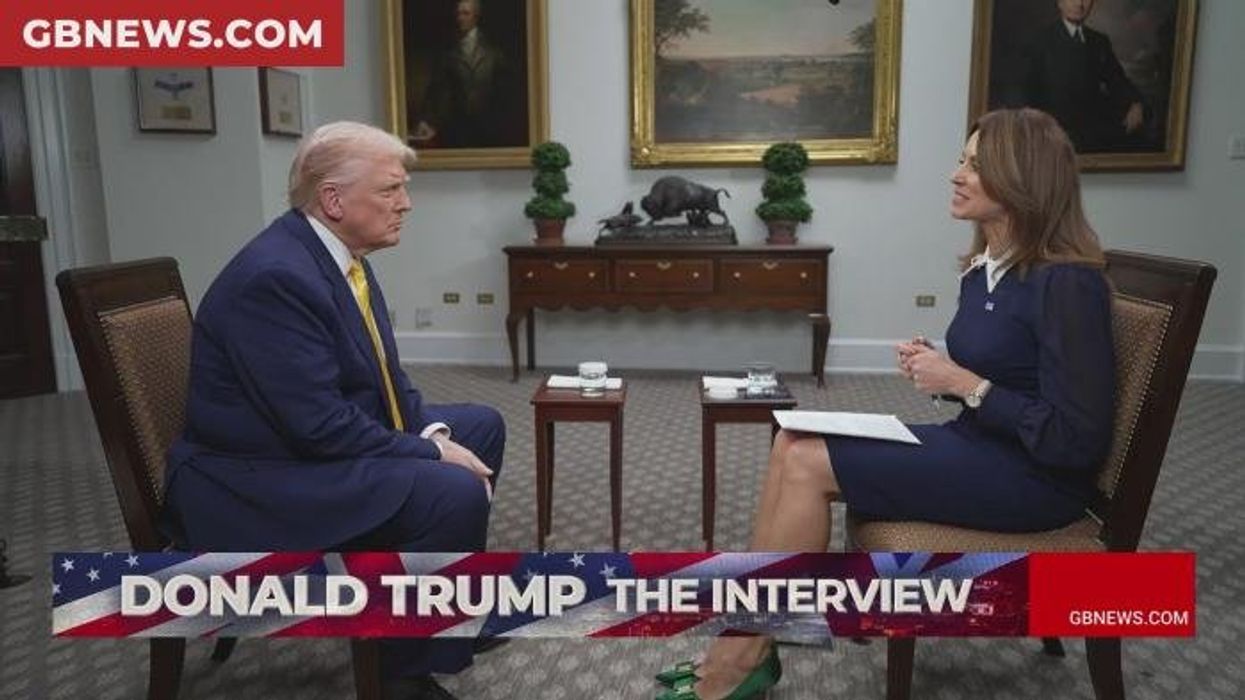
WATCH: Donald Trump blasts ‘CORRUPT’ BBC as he vows to take broadcaster to court - ‘I have an obligation!’
|GB NEWS
The President sat down with Bev for GB News's US programme The Late Show Live
Don't Miss
Most Read
Trending on GB News
Bev Turner (BT): Mr President, thank you for giving GB news this opportunity to talk to you and to hear from you. We've spent some time on your trips to the UK recently and had some conversations, but this is the first time we're getting to sit down and talk, and I've spent a little while in America now, and I've been really struck by the sense of positivity here. That can-do attitude is really in contrast to the UK and more broadly, Europe actually, which feels like it's in the doldrums at the moment, economically, socially, really struggling. And that's been a long term project, I think. But you've proven that leaders don't just have to sit around writing strongly worded letters. You can actually get stuff done in a short space of time. How have you done it?
Donald Trump (DT): Well, if you look, you talk about Europe and other places, but this was a place that was more about it, was it was a disaster, the U.S., under the Biden administration, and there was no spirit. Nobody wanted to go into the military. Recruitment was at record lows. Everything that was bad. It just couldn't get, I don't think much worse outside of a total collapse.
And we've turned it around. You know, it's my 10th month, and I think nobody's done what I've done. It's the hottest country in the world right now. The US, right now, is the hottest country in the world. The King of Saudi Arabia, other leaders, they said a year ago your country was dead, and now you have the hottest country in the world, so it can be done. I'm so saddened to see what happened in Europe with the immigration. I think above all else, the immigration, but the bad taxing policies. When you look at, you know, their Europe is not the same place. I can't say every place, but pretty much almost every place. There are a couple of places, and I won't even get into that, because those are the people that the leaders that aren't liked by the other European leaders. But what's happened is so sad to Europe. And I think probably you have the same problem that we do with the fake news. You know, if you don't get the news out and properly, it's never going to change. But Europe. I love Europe. Hey, I'm originally from Scotland. Yeah. And between Scotland and Germany? Yeah. A German father and a Scottish mother. And a great mother, by the way. I have to tell you. Great father, great mother. So I have a little prejudice toward Europe in those two places. But it's so sad to see what they they're doing.
BT: So how have you done it? Is it about your team, your vision, your drive? You know, from day one you were signing executive orders? The pace of change here is remarkable. I almost don't know what you're going to do for the next few years. You've done so much in such a short space of time.
DT: Well, we have a strong border. Yeah, we have a lot of spirit. DEI is dead. It's dead. It's not even talked about anymore. You know, like I saw this morning on television, a well-known Democrat congressman. Fighting with the anchor. Somebody like you, but not as talented because you wouldn't have let him get away with it. But fighting with the other men playing in women's sports. I said they haven't learned because we won in a landslide. We won everything. We won all seven swing states. We won by millions of votes, popular vote. We won in every way. You can win in like, record numbers.
And I see this man fighting with an anchor about men playing in women's sports. Here we go again about open borders. He wants open borders where people can come in from prisons. I mean, when you look at Europe, where they're coming from, they're coming from some of the worst places on Earth, and you're destroying your country. And I've told some of the leaders of Europe, you've got to stop. Your immigration is going to destroy you if you get people from the wrong people. In our case, we had people coming in from jails, from mental institutions, from the drug dealers and some of the worst scum, and we're getting them out and we've got a lot of them out. If you look at some of our cities that we've, you know, sent the military into, correct. Washington, D.C. was very unsafe, and now it's the safest place in the country. It took me two months to make it good. Less, actually, but two months to make it really good. Now everyone's having dinners, and we have these beautiful, nice military guys all over the place, and they look good. You know, to me, they look good because it means safety. But we took out 1,700 career criminals and criminals from other countries that came in, like they come into your country, and Europe has to do something about it. Well, we are doing something. Even in Chicago, we have a bad governor and a bad mayor, and we're fighting with them all the time. But crime is down now, 40%, and we've just done a little splurge and crime is down 40% in Memphis. We're in Memphis right now. Memphis, Tennessee, a very, very dangerous bad place. We've almost got it fixed. And this is after a month, less than a month. What it shows is it can be done. And Washington, D.C. is such a great example. Because people were afraid to walk outside, and now they're there walking down with their children in the middle of the street.
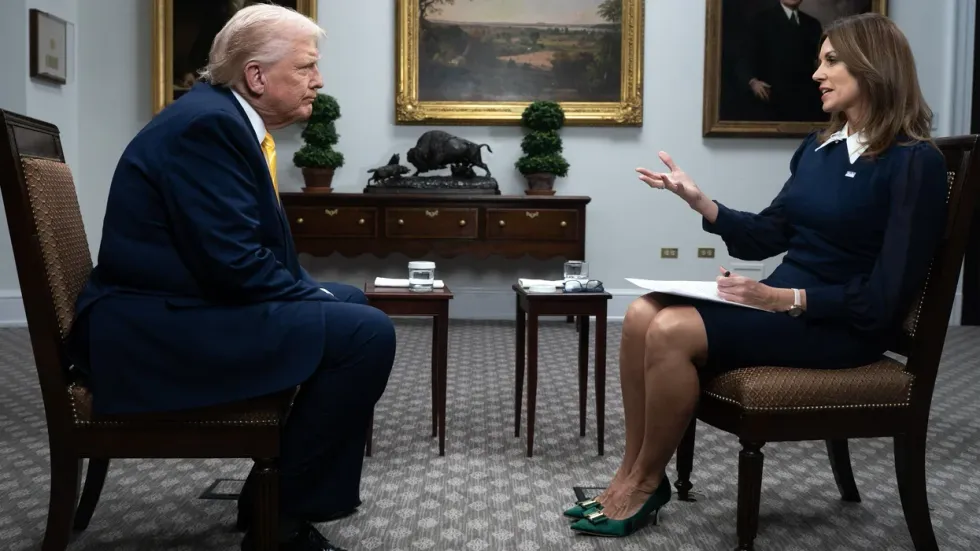
Donald Trump discussed the changes he has implemented in the US
|GB NEWS
BT: I'm a big fan of the National Guard here, right? I'm pretty much on first name terms with the guys on the corner of my street, and they're so friendly, and you see them putting shopping in the car of old women, and it counters this idea that they're an aggressive presence on the street. They're not. We've got such a crime problem in London, and I wonder whether Sadiq Khan should do something similar.
DT: Terrible. Terrible, Mayor. And as an example, you know, I was a high ranking officer, sort of always. Or a President, even as a civilian. You know, he was a respected person. He treated me very badly. I said, who is that guy? He's a terrible Mayor. And look at the crime you have in London. My mother loved London. She loved that city. She'd always talk about that was a different London than you have today. Today you have people being stabbed in the ass or worse. But no, it's crazy.
BT: It's true, it's awful. It is. And it feels much safer here.
DT: Your mayor is a disaster. Okay, I can. I don't know. I don't even know if you put them there. I wouldn't even know who he was. I can tell you, he is a disaster. He's a nasty person. And he's letting crime go, right? You have areas in London. And you have this in Paris, too, where the police don't even want to go anywhere near those areas. You have Sharia Law where they don't even want to obey the laws of, you know, your country or France or other countries, and you have much worse conditions than even that. It's crazy what's going on with Europe. And, you know, I'll do this interview. I hope it's not too controversial because, to be honest with you, it's just fact. It's not like there should be no controversy, and they have to do something. One other thing, energy. Your country has the North Sea. It's one of the greatest energy fields in the world. They make it impossible for anybody to drill environmentally. They make it. And taxation wise they want almost 100% of the money that comes out. So you have these great oil companies that can't go there because, and, you know, then they say, well, it's been there a long time. It's used. You've got 1000 years of life there. That's one of the most vibrant, and it's also some of the best oil. You know, it's really you know, you have good oil, medium oil, but you have some of the best oil, some of it so good you almost don't have to refine it, it's so good. You have this huge asset sitting there and you're destroying your country with windmills all over the place. I mean, I fly over Scotland and I fly over parts of the UK in a helicopter a lot. And I'm looking down and I see these gorgeous fields being destroyed by windmills, the most expensive energy you can get. It's intermittent because if it's not windy, you don't even get it. But to put up those things means you lose millions of dollars. Every time you put up a windmill. You lose millions of dollars because they don't make money, they lose money. You're supposed to make money with energy. And you have, boy, do you have an asset? Yeah. If they would open up the North Sea again, you could open it up and in split seconds. Every oil company would want it. Look at Norway as an example. Norway is a very rich country. They have the North Sea too. They say you have the best part of it. Who knows? But Norway's immensely wealthy because of the North Sea. Same North Sea as you have. Why don't they do something? Why don't they supply your country? You know your energy costs are among the highest in the world. It's crazy.
BT: It's got to be because there is this assumption that the climate is warming up because of man, and that we have to have more renewables and renewables in principles sound like a great idea, use the sea and the wind.
DT: Beautiful words a disaster. And you know, when they talk about the climate, it's the whole thing is a hoax. They used to say it was started by other countries to cause problems, and they used to call it global warming. But that didn't work because they started it started getting colder. They even called it many years ago global cooling. But those things don't work. So now they call it climate change, because with climate change you can't lose. It's the whole thing is a hoax and your country, among others but your country is one of the worst. You talk about UK, it's one of the worst in the world for believing this nonsense is fiction. As an example, China is very smart. They sell the windmills. Almost all of them used to be Germany and China. Now it's mostly China. And yet if you go around China, you see almost no wind farms. So they make the windmills and they sell it to the suckers. You know, the stupid people, but they don't have them themselves. They use oil and gas. They use coal, but they don't use the wind.
BT: But I think it takes real backbone as a country's leader to stand up in a room like he did in New York with the UN, which was for me, it was one of the greatest moments. I could watch that speech. I loved it, it was brilliant.
DT: The UN took away my teleprompter. I know just before I got up, I said, I'm being introduced. I say, ladies and gentlemen, on behalf of the United States of America, President Donald Trump. And I'm looking at him saying.
BT: After the escalator was already broken as well. On the way up.
DT: The escalator stopped and it didn't stop. Like, you know, it stopped and I had my wife in front of me. Fortunately, I said I just grabbed, but it came to a sudden halt like you heard the crash. So that was the beginning of the day. And then I got on there. And I'll tell you something that nobody knows. The speakers in the room were off, so the only people that heard me were people either listening to television, which is still your biggest audience, but we had 158 leaders in the room, and unless they were wearing the earphones, you couldn't hear a word that I said. In fact, I went out. I thought I gave a good speech considering the fact I had. Some countries don't really have a choice. They have, you know, they don't have oil. The UK has one of the greatest fields anywhere in the world. And you don't use it. You know, I was approached by the oilmen that used to be there. And its hurt the towns in the surrounding areas, it hurt everything. But I was approached by the oilman and they said, sir, can you help us? We have the greatest oil in the world and they won't let us use it. They won't let us use it. If you had some other country with that kind of thing, including China. Look, China doesn't have real energy. They have a lot of energy as people, they have great energy, right? And they're great. But China doesn't have any oil. They have to go get it. And they used to get a lot of it from you. They don't do that anymore because you don't do it. Your whole economy would change. You know, because oil is so much bigger than any other subject in terms of economic wealth and in terms of lifestyle and living. And underpinning the success of a company, of a country. You have beautiful, clean, really incredible oil and gas, and it's sitting there and it saddens me. You know, I have in Aberdeen, I have a tremendous project and I own Turnberry too, and I own one in Ireland. So I have three very great projects and I look and I say the value that is being wasted in this country, it's so sad. I mean, and you can only say it so much, you know, how much are you going to, It's not in your country, you feel badly saying it, you're telling somebody else what they're doing. You're sitting there with the greatest, one of the greatest oil fields in the world, and you're not using it. And when the oil, when Exxon, when these big companies want to use it, they're rebuffed. They're told no. And you're putting up windmills all over. You're killing all the birds, by the way. They're ugly as hell. They make noise. They're very unsafe. And they produce every time that thing goes around, it loses money.
BT: They can't recycle them. It's landfill at the end.
DT: Remember this. After ten years, you have to take them down and put new ones up because they only have a certain life. it's hard to believe.
BT: Now, unfortunately, even though there are so many topics we could talk about, we have to tackle the issue of the BBC and this defamation case. Can I just ask you how how did you feel when you were first shown the footage or told about this edit, which the BBC say is unintentional to depict you in that way. But how did you like feel about it?
DT: Do they say it's unintentional? Well, then they're stupid to say that. You know, they wrote me a letter of apology, as you know.
BT: How was that, then?
DT: It's fine, but what is it? Yeah. It's fine. They wrote me a nice letter. We apologise. But when you say it's unintentional, I guess if it's unintentional, you don't apologise. Right.
You know, I made a beautiful statement, and they made it into a not beautiful statement. And now I hear, just before this interview, I was told somebody said, sir, you were not going to believe what BBC did it again. They found another place, I think, on a totally different place.
BT: Newsnight.
DT: Uh, yeah. They did it again. It's not even willingly. You know, I just settled with 60 minutes in New York, CBS because they had Kamala the night or two nights before the election. Her answer was so bad it was election interfering. Okay, that's how bad it was. And they took her answer out and they gave her a totally different answer using her. At least they used her, but they took it from 20 minutes or something later in the interview. In other words, they took some other answer to a totally different question. And it was still a lousy answer. But it wasn't election threatening. Right.. And we just settled that case. But that's not as bad as what BBC did. BBC, actually. I mean, as bad as that was, they took her and her answer was terrible. It was long, horrible, stupid, so stupid. If anybody listening to it would have voted for Trump. Most of them did anyway, fortunately. But what happened is they threw it out, just threw it out, and they took another one. They asked a question. They put a totally different answer. And through a series of weird events, just like the BBC was a weird event how we found out about it. One of their competitors reported it. You've got to give them credit. But in the 60 minute case we found out because they advertised it in a commercial and they used a little bit of that first answer, and then we found out she said, well, but that wasn't on the show. It was a totally different answer. We found out through talent and luck. But BBC, what they did is worse.
BT: And if it wasn't for the Daily Telegraph in the UK shining a light on this story and then other channels.
DT: You got to hand it to them. I assumed they were enemies?
BT: Well, I think they're part of the establishment media in the UK and they've been there for many years. They're very well respected. They were.were angry I think on your behalf of that depiction. How how easy was that decision to pursue legal action. You could have maybe picked up the phone to Prime Minister Starmer, and just said, can you have a word with someone at the BBC? Or were you quite resolute?
DT: I don't even know if the BBC is owned by, you know, what percentage is owned or if any is owned by your government? I don't know.
BT: It's funded predominantly by the British taxpayer, so we have to pay up.
But how far are you prepared to push it? Because you've invented the phrase fake news. You invented that ten years ago. Probably now. Fake news. Fake news. So did this feel like a smoking gun? When for years, you've been frustrated with the depiction of this?
DT: Yeah, I think I've proven fake news is because they used to have high approval ratings. The media now, they have the lowest. I think they're lower than Congress, which is pretty good. So no fake news was a great term, except it's not strong enough. You know, I'd like it to be stronger. You know, the word fake is one thing, but this is beyond fake. This is corrupt, what they did. So, uh, no, you know, the lawyers walked in and said, ‘sir, you're not going to believe this. And they show me the one, and then they show me the other. And it's not even close, you know, it's different words. It looks like it's actually the same mouth movement. Somebody did an amazing job to be able to find this, but it's a totally different meaning and totally different words.
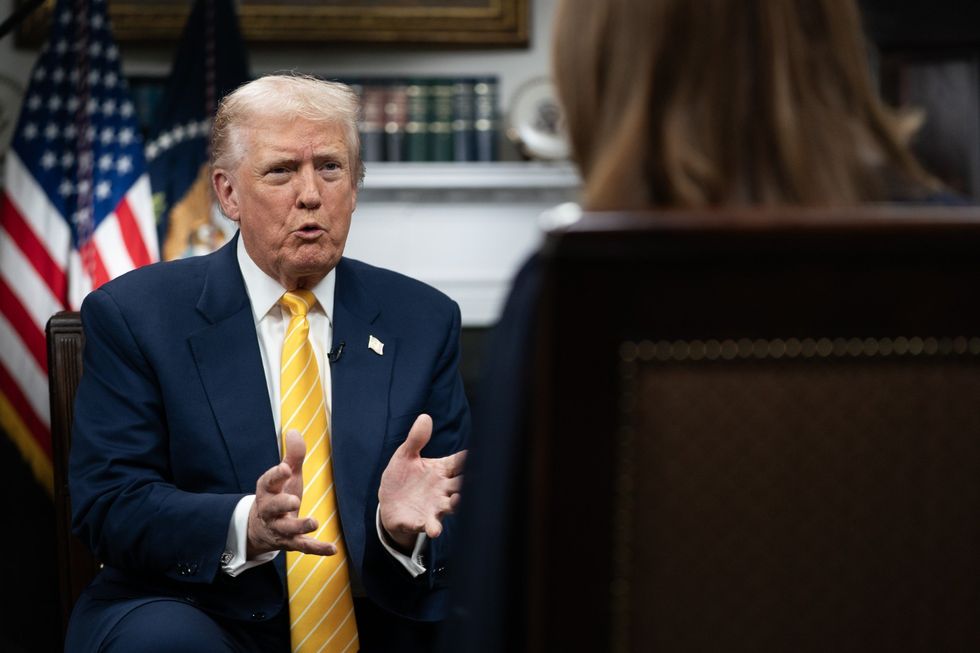
Donald Trump discussed Britain's energy crisis
|GB NEWS
BT: So as somebody that understands television, I always think when I watch you, I think you have certain different hats you put on. You've got your TV guy, you've got your property developer guy. Talking about the ballroom, which I think is brilliant. And then you've, you know, you've got your father hat on where you've got this amazing family. But in this instance, you're looking at it through your sort of tele guy eyes as well, and thinking, if you'd worked on a show where they'd edited something together like that, you it just wouldn't get past the editorial process.
DT: That was first thing I said. Who would do this? I've never heard of this one before. You know, you worry about AI because things like this can happen, you know, with their different geniuses. I mean, you know, you can do things. I've seen things that are incredible, but you can't imagine that BBC did this somewhat crudely, actually. Yeah. You know, it was done sort of crudely.
BT: They'd clipped together, hadn't they? Two parts of the speech that were nearly an hour apart.
DT: It's incredible.
BT: Um, to depict the idea that you had given this aggressive speech which led to this riot.
DT: And one making you into a bad guy. And the other one was, you know, my statement was a very calming statement. Uh, it's pretty incredible. I mean, I just, I couldn't believe it actually, I've never seen it. I've been doing this for a long time. I've never seen anything like that. That's the most egregious. I think that was worse than the Kamala thing with CBS in 60 minutes.
BT: How far will you push it? Because they haven't offered, our understanding is they've offered no money whatsoever. They've apologised in a letter, but they haven't offered you a penny in compensation. There was this figure of $1 billion that you may be pursuing.
DT: I think I have an obligation to do it. I look, but I think I have an obligation to do it. This was so egregious. If you don't do it, you don't stop it from happening again with other people. I think you probably have an obligation. I'd like to find out why they did it. You know, it's so bad. Yeah. Who? Who thinks like this? And I wonder if they've done it. We'll find this out. You know, the nice part about litigation is we'll find out. How many times have they done it to other people. Maybe they did it to me quite a bit, because I've done a lot of publicity over there before. You know, I was getting in Aberdeen, which is such a great place. I went through, you know, years of permitting and everything else to build two great golf courses. And I did it really as almost art more than anything else. I mean, I'd do it for the art. I'm lucky I can do that, right? But it's beautiful and, you know, owning Turnberry and having the great Turnberry, which is so beautiful and so I, I know your country so well. And the fact that my mother was, you know, my mother was a great fan of the Queen.
Anytime the Queen was on, she said, excuse me. Don't talk. We have to listen to the Queen. She loved the Queen and the royal family. And, you know, we were honored just recently by King Charles, and the family of the Royal Family. And they couldn't be nicer. It was great. We had an amazing few days.
BT: The state visit was beautiful. I've never seen anything like it. Incredible.
DT: The whole thing was it couldn't have been more beautiful. That room with a long table. It was amazing. I've never seen a room. I got to build one of them someday.
BT: Talking of Scotland. For instance, the average life expectancy in the East end of Glasgow now is 57 for men.
DT: Wow. You would think it would be the opposite. It's so beautiful. Yeah. The air is so good. The air is so clean. You know? Everything is so.
BT: But if you were parachuted into Scotland tomorrow to save your ancestral homeland, what would you do? Where would you start?
DT: Well, it's so amazing that when you tell me this, because you would think that you would live forever because it's so beautiful now it becomes less beautiful because of the windmills. It really does. But you would think that now, at the same time, they have a hard life economically. You know, there's not great economics there. You know, Sean Connery was sort of a friend of mine, and he was a great guy. I used to sometimes call him the King. But I spent years getting zoning in Aberdeen in particular. Turnberry was different because it was built and we made it incredible, more incredible than it even was. And it's unique. But with Aberdeen, you were starting right from the beginning. And I was having a hard time getting the zoning. And it wasn't like my real business. It was a piece of art, the most beautiful dunes, I think, in the world.
I was into it for maybe 3 or 4 years. And Sean Connery was in Scotland and he said, let the bloody bloke build his bloody golf courses. He's an American. He wants to invest money in Scotland, he said in Scotland, let him build his bloody golf course. Did you know that after he did that I got my approvals in like two minutes.
BT: And you've just won a world record for having the best golf course in the world, I think.
DT: Just rated one of the best golf courses in the world. But think of Sean Connery. No longer with. Us. Yeah, but he said, let him build his bloody golf courses. In other words, I'm investing money in Scotland. And he was right. But he was so respected. It was crazy. I said, you're the greatest zoning lawyer in the world. My zoning lawyers can't do anything, but you just make one say. But he was great. He was a great character. He was a great actor.
BT: It's one of the things I've noticed about being here is this sense of patriotism, which you've revived. This period of renewal. You've even got record numbers of people signing up for the armed forces. They love this country so much, they're volunteering to prepare to to die for America. That's what any leader of a country would want. In the UK, we've got a resurgence at the moment where people are putting in Union Jackson, Saint George's flags around on motorway bridges, outside houses, and then councillors are taking them down and it's become a bit of a battleground because we've got this timidity about who is the British people. Who are we? What does it mean to be British? And so how would you define American patriotism and what can we learn?
DT: Well, the thing I'm most proud of is that two years ago, we couldn't get people to join the military, Army, Navy, Air Force, Marines, Coast Guard, Space Force, that was mine. We started the Space Force, so I have a pride in it. But you couldn't get anybody to join. Even the police. You couldn't get them to go to the police. You couldn't get them into the fire departments. We have a lot of people. You know, we have the strongest borders anywhere in the world right now. And we had the weakest borders in the world, a year ago. So I think that one of the things I'm most proud about today, to get into the military is hard. It's like getting into the best college because everybody wants to be in the military. That took place one year. Think of it, one year ago you couldn't get it. And now it's like research, and maybe we'll open up our military and let more people in. But today it's considered a prestigious job, a wonderful job. Everybody wants to be. You heard this story. We had the best recruitment numbers in the history of our country. And a year ago we had the worst. So it can take place fast, but they're proud of the country. I mean, I talk about the country. We have the strongest military in the world. We make the best military equipment. And by the way, we sell a lot to you, and we have a great relationship with your country. But I want your country to do really well. I want your country to do better.
BT: I know, and there is a sense that we are struggling with our identity, who we are. Are we the kind of country that looks to the government to give people a handout if they haven't got a job? Are we encouraging people to go back to work?
DT: Well, your energy costs are among the highest in the world. Yeah. And yet you're sitting there with the greatest energy field in the world, one of them one of the top three or four. And you should have the lowest energy, not the highest energy.
BT: How have you done that on the border? Because we watch in the UK repeatedly, illegal migration comes up at the top of people's concerns in Great Britain. And it's not that we're not a generous country and we've always taken refugees.
DT: You feel badly about it, but you have no choice. You have a country. To run.
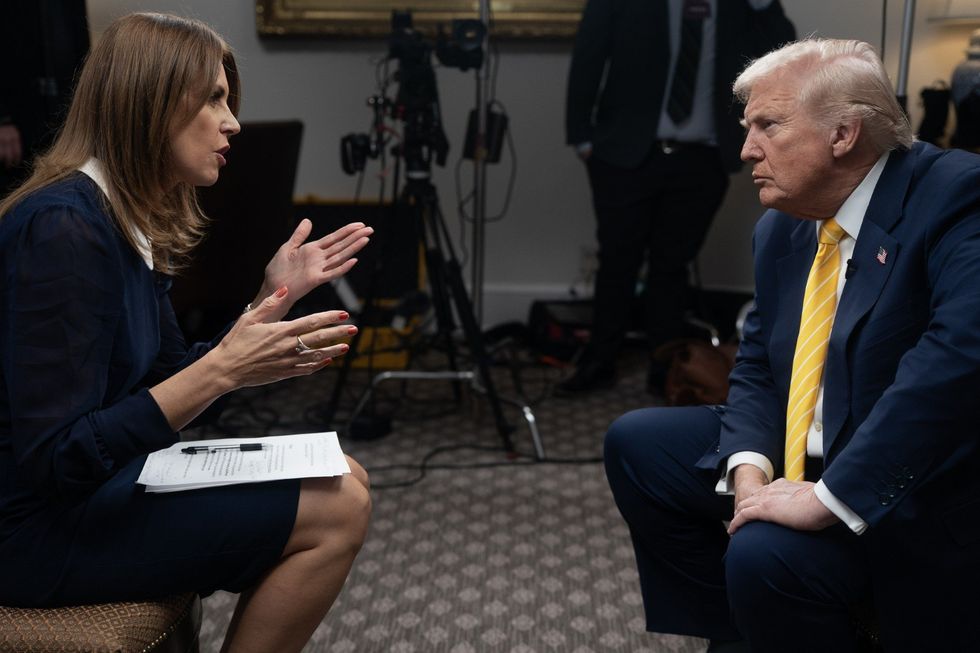
Donald Trump told Bev Turner he feels he has an 'obligation' to sue the BBC
|GB NEWS
BT: But no one has any money. And so when you have people have paid into the system, the elderly have paid into the system all their lives, and they're on a waiting list to get a new knee for a year. And yet they see people arriving illegally, being given accommodation, food. You know.
DT: You have to take them out. You have to take them back immediately. Don't forget, two years ago, a year and a half ago, we were having millions of people pour through our borders. You know what we have now for the last six months? Zero.
BT: It's incredible.
DT: Zero. So we were very tough at the border. We would take people immediately back. And I had the military as a back up because you've seen this thing. We were trying to break down the fences and everything else, and we don't play games with our military. And we won a Supreme Court case where things are based on merit. That means the military too and a military has to be a certain type. We can all be politically correct and say, you know, everybody should be in the military. Everybody should. Well, you have people that are born for things and people that aren't okay. And that means good and bad. We have an amazing military. Now we have people that look like they're supposed to be soldiers and they don't play games. That's how DC is so strong now. You know, we had thugs, we had gangs, and we had people that were afraid to go and talk to them. Now you have guys that don't even do the talking. They just walk in. It's like an unbelievable. And we throw them out. We bring them out, they throw them out, they bring them back to Venezuela. They bring them back to different countries where they came from, and they are told never to come back.
BT: So you think we could probably do something similar, which is to put the military on the coast.
DT: Identical. And you have an advantage because actually, you know have the sea, and the sea is sort of a protector. Sometimes they come in by boat, but it's a protection.. You could do the same thing, you know. Biden. Sleepy Joe Biden, one of the worst, definitely the worst president in the history of our country, a man who didn't do a good job in any way. But, you know, he said, I can't stop the people from coming in because I need an act of Congress and I can't get it. He said, you don't need an act of Congress. All you have to do is say, nobody comes in, I didn't get an act of Congress. So I had a very safe border the first time, the first four years.
But now I have a really safe border. But I didn't have to go to Congress. It's a very strong presidency. And you say stop the people from coming in, and they listen to me and nobody comes in. And I mean literally nobody other than have they come in legally. We have a good process for coming in. You have to learn. You have to show that you can love the country. But yeah, Biden was just a terrible President. You know what he did with inflation, what he did with other things was we had the highest inflation in the history of the country. Now we have almost no inflation. But what he did with allowing millions of people to come in. Now the difference is I'm moving them out, I'm getting them out. And we're dealing with the worst ones. First we had 11,888 murderers. Think of that, 11,888 murders. Largely for the most part, they're gone. Yeah, and some of them murdered more than one person, and they're gone. You have the same exact thing. You have people coming in from parts of the world. You better do something about immigration because it's more important than inflation. You know, inflation you can solve. But when you have people coming into your country and they're bad people, the wrong people it doesn't work and it's not working. If you don't get them out, you're not going to have a country left.
BT: When you wake up at 3:00 in the morning, like we all do. What do you worry about? What? What is the thing that keeps you awake at night when you. I mean, I don't think you sleep for a start, because I've seen your schedule and you don't really bother with sleep.
DT: We have time to sleep later on. Yeah, lots of time. We have infinity. But no, I think that, you know, I had an expression when I first ran Make America Great again, right? Very simple expression. I think in political history, it's the best ever used. Maybe beyond the United States, maybe. I think about that. I just want to make America great again. It's like I don't want to be politically correct. I don't want to be. I'm sort of conservative, I guess, but that's because policies tend to be like Conservative. You know, you want strong voters, you want good education. You want a powerful military. You want, different things. But the expression really says it all make America great again. You should have the same expression in your country. Make the UK great again. You know, you have so many terms. You have England, you have Britain, you have the UK. You have whatever you want to use. You want to make it great again.
BT: But we're not alone in Europe that leaders of European countries are, particularly the UK, are incredibly squeamish about the suggestion that their people are more important than people coming from other countries. Why?
DT: Well, you don't have that in. Okay. Look, in the case of Hungary, you have a man named Viktor Orban who the other leaders hate, but who does a fabulous job. You know how many people he's allowed into his country? Zero. And he's got no problems. He has taken some Ukrainians, you know, from the War, but basically zero. You know, the Ukrainians, they blend in. He's allowed nobody to come in. You had a couple of Poland, I think have done a very good job. Poland has been great. And the man who won the election, who was fantastic, was not expected to even come close. It was one of many people running. And through a friend of his and a friend of mine, a mutual friend, I endorsed him and he won the election. So it was a pretty big upset. But he's fantastic. He's going to be a great president. But Poland doesn't take people in. There are some countries that just refuse to do it.
BT: Yeah. We're not one of them.
DT: No, you are not one of them.
BT: You've had a phenomenal success with solving conflicts, and the Peace President is one of the names. I know that you hear quite a lot. Russia. Ukraine remains intractable and irritating for you. I imagine.
DT: It is. So I settled eight wars and I have one to go. And you know, last week they say during the month, during the last month, actually, 25,000 soldiers were killed between the two countries, fairly evenly split. Think of it, 25,000 young, now they're getting older by the way, I must tell you. But young soldiers were killed. It would have never happened if I were president. I thought I have a very good relationship with President Putin. I thought that was going to be an easier one because I solved some of the wars, which were going on, in one case, 32 years. And I got it settled in, like two days. I'm very proud of that. I just had one. Where today I think I settled one today. Another one. But we just about exhausted the supply of wars. You know, I didn't know there were so many wars. If you look at it. But even if you look at India and Pakistan, nuclear nations, and they were going at it, you know, they were really going at it. Eight planes were shot down. They were real. And who knows what happens with the nuclear powerful nuclear weapons. And I said, look, if you're going to go and fight, I'm not going to make any trade deals with you guys. And I put tariffs and did all sorts of things. And within 48 hours I get that, I got that taken care of. They're good. And that's a big thing. But I did that eight times. The one I haven't done yet is Russia and Ukraine. It should have never started. It's a bloodbath. It is a terrible bloodbath. There are so many soldiers. Not since the Second World War has anything been like that. It's going to happen. I hope it's going to happen soon. We're putting a lot of pressure on them, you know, with India and the oil and India is now pulling out and others are pulling out because as Russia sells oil, they have money to do things. But I think we're going to get it done. But it's a shame.
BT: If I can just bring you back to the BBC, where do you see this going now, President Trump, do you see this being a long legal, protracted conflict with the BBC?
DT: Well, they’ve admitted their guilt, but they don't have to admit their guilt. It's on tape, you know. I mean, there's nothing to admit. Uh, no, I think, uh, we have a statutory period. We've notified them by writing, and I think you have to wait, wait a week. And so that time is coming up, and after that time comes up, we'll sue them. My lawyers say for $1 billion or more, and we'll see how it all works out. But I can't imagine they could do very well in that lawsuit. What they've done is incredible. I sort of have an obligation. Not that I want to do it. I have an obligation to do it. So I've been doing this for a long time, and I've understood. And nobody understands the press because, you know, I'm the one that explained to people it's fake news. But I hate when people say, oh, I understand the press because they're fools, because nobody really understands. The Press doesn't understand itself. But I will say, I think I have an obligation to bring a major lawsuit against the BBC, because what they did is impossible to believe. I never would have never even thought that. Even the Kamala thing. To a certain extent, you know, was so bad. But you could see how it could happen.
BT: And it's the idea, I suppose, that you're doing it not just for you because you're feeling is. Well, if they could misrepresent me in that way, they could misrepresent anybody in that way.
DT: Well, they can be doing it. And one of the things we'll find out during this litigation through depositions and everything is how many other times have they done it to your Prime Minister? Have they done it to Nigel? Have they done it to you know the people that are in your country? Uh, the answer is probably yes, but we'll be finding out a lot of things over the next few months. And one of the things, you know, your litigation moves a little bit quickly in your country. So I think it's going to go fairly quickly, although I don't know that we bring it there we probably bring it someplace in the US from our standpoint.
BT: And you've had success with suing media companies before?
DT: Yeah That's true. And Melania has had success and we've had a lot of success because it's fake news. But I've never had anything so fake as the BBC.
BT: You're obviously a really good dad. Your children really like you, which is obvious. Or love you. Everybody loves their parents. But they don't all like their parents. And they clearly have so much respect and warmth towards you. And I often think watching you that actually being a good president is a bit like being a good father. Yeah. Tough love, clear boundaries in the interests of the people that you're looking after. Does it ever occur to you how much the role is like being a father? Being a president?
DT: I never thought of it that way. I can't believe I'm getting a question I've never thought of or never been asked before. Um, if you think about it, I love this country. I love the people of the country. But people do say, what do you recommend for growing your children. And I've seen so many children. I've seen so many brilliant children of brilliant people go bad and become tremendous failures. And I find that so much of it's caused by drugs, alcohol, you know, different substances. And I always would say to my kids, no drugs, no alcohol, no cigarettes, I'd say no cigarettes too, you know, it's not of the same, but it's if you can avoid it because if you don't start it, you don't have a longing. I mean, I have friends long to have a cigarette. They quit smoking, but they long and they see somebody with the cigarettes like they're caged lunatics. But even more so with drugs and alcohol. And I would always tell my kids no drugs because no drugs or alcohol. I said, over the years, I've seen really smart parents, have really brilliant kids, and the kids are a disaster because they got hooked on drugs. And when you hooked, it's hard to get off. And if you never start them. Like, I've never had a drink in my life and I don't take drugs. I have no longing. But people that do the drugs, they don't talk about as much. But when they see when you have a person that suffered with the alcohol curse and they're out to dinner and they see, you know, some of your wonderful whiskey or whatever. Yeah. When they see that coming down the plank, they say, oh, man, does that look good. If you never start. It's so easy. No, I have other problems. You know, I got plenty of problems like everybody else, but it's just not a problem that I have. I always say, no drugs, no alcohol, no cigarettes. Ivanka said to me, she said, ‘dad, you're driving me crazy. Stop saying that’. I'd say it all the time whenever I see him. No drugs, no alcohol or cigarettes. So I think it worked. But who knows? You know, you never know.
BT: And now a grandfather, of course. How much do you enjoy that job?
DT: I do, I have beautiful kids. I have wonderful kids, wonderful grandchildren. I have a good family. Yeah. Well, lovely to sit down and talk with you.
BT: Thank you. Have a lovely weekend. Well, you too, and good luck with oil, energy and illegal immigration.
ENDS
More From GB News






